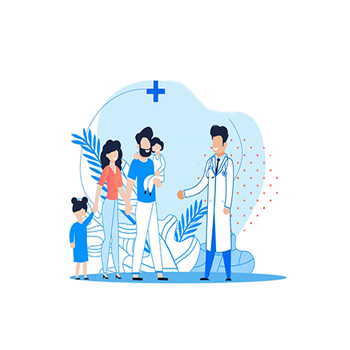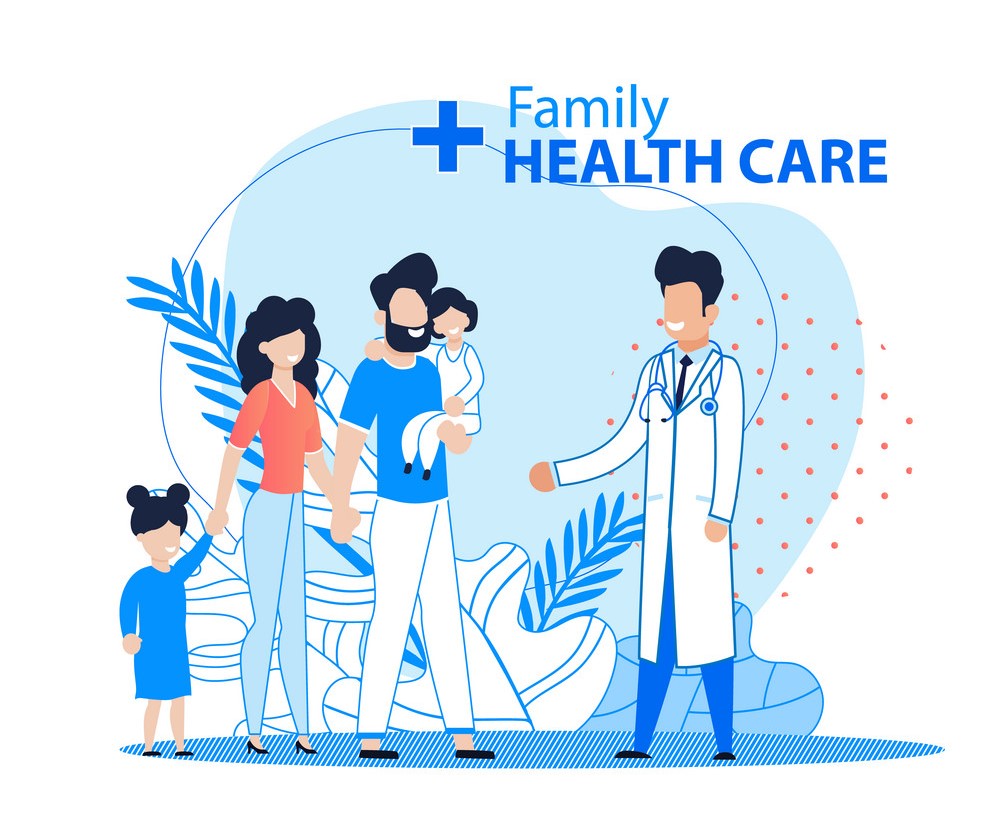What is Family Medicine

Definition
Family medicine is the medical specialty which provides continuing, comprehensive health care for the individual and family. It is a specialty in breadth that integrates the biological, clinical and behavioral sciences. The scope of family medicine encompasses all ages, both genders, each organ system and every disease entity.
Scope and Value
The scope of family practice covers a wide spectrum. At one end are family physicians who may be the only local source of health care for their community. Besides maintaining an office practice, they perform minor surgical procedures, handle major trauma cases and stabilize patients for transport if necessary. At the other end of the spectrum are family physicians who limit their care to office practice and coordinate comprehensive care for their patients in a multi-specialty group. Family physicians deliver a range of acute, chronic and preventive medical care services. In addition to diagnosing and treating illness, they also provide preventive care, including routine checkups, health-risk assessments, immunization and screening tests, and personalized counseling on maintaining a healthy lifestyle. Family physicians also manage chronic illness, often coordinating care provided by other sub-specialists.
Specialised Clinics in Primary Healthcare
Diabetes Clinic
Responsible for the follow-up of diagnosed cases of diabetes. Follow-up entails, periodic appointments, to assess disease progression, by patient history and examination in addition to periodic blood investigations and the prescription of the adequate treatment. Patients are provided with support and advice for lifestyle modification.
NCD Clinic
The non-communicable chronic diseases clinic is responsible for the follow-up of diagnosed cases of: hypertension, dyslipidemia, hypothyroidism, osteoporosis and asthma, according to local and international guidelines.
Mental Health Clinic
The mental health clinic is responsible for screening for mental health conditions, and follow-up and initiation of pharmacological treatment for mild to moderate mood disorders (depression, substance, misuse, anxiety, PTSD). The clinic also provides behavioral health interventions for chronic diseases.
Geriatric Clinic
Responsible for the follow up of individuals 65 years of age and above. Various parameters are assessed and monitored: comorbidities, nutritional and functional status, mood, cognition, polypharmacy, social support.
Well Baby Clinic
Responsible for the regular periodic checkups of children from birth to 5 years of age, to assess various areas of growth and development. The clinic provides education and support to parents, in addition to an array of diagnostic and preventive services including immunization follow up, nutrition surveillance.
Anti-Tobacco Clinic
The anti-tobacco clinic provides support and pharmacological treatments in order to aid individuals to quit smoking and other tobacco related habits.

Quotes from Kuwaiti Family Physicians

